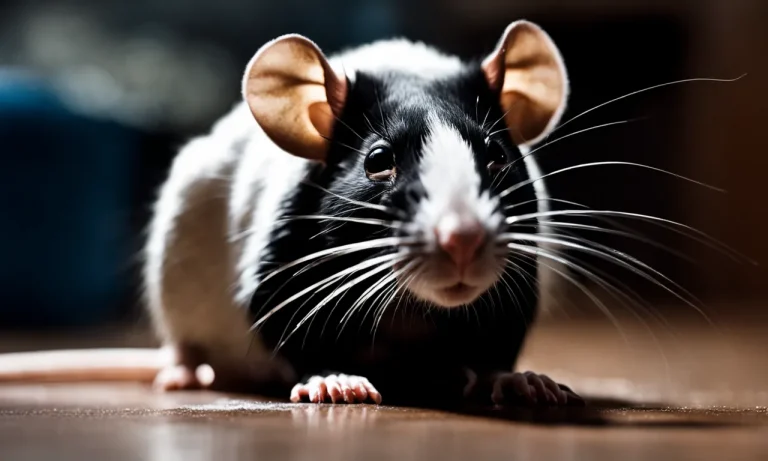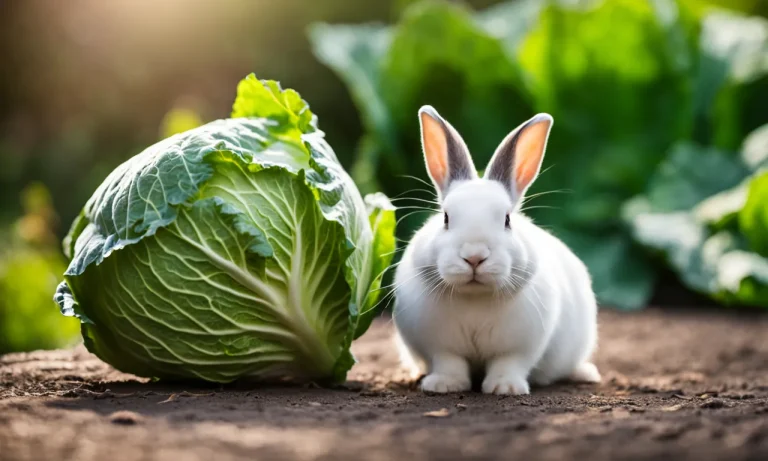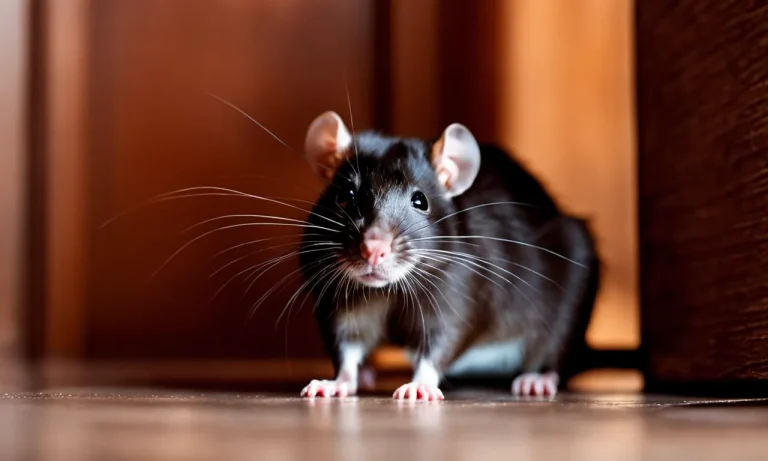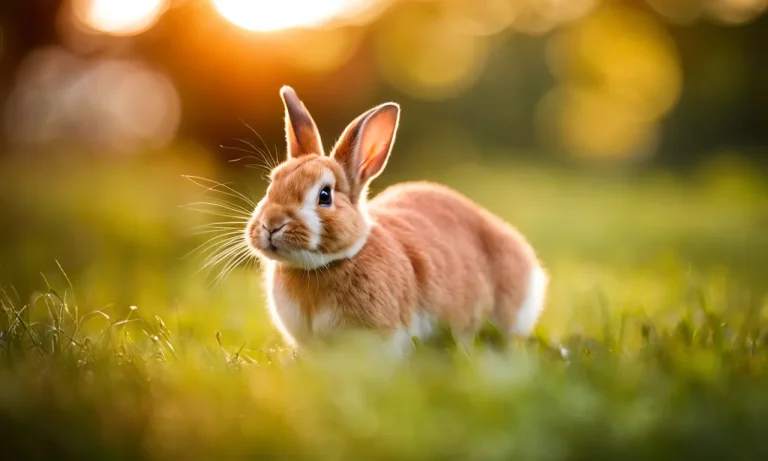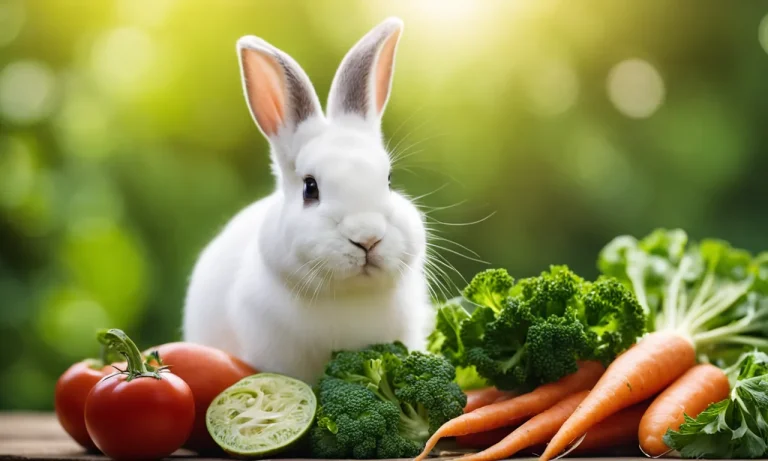Welcome curious bunny lover! If you’re wondering about the lifespan of cute little dwarf bunnies, you’ve come to the right place. These tiny rabbits make wonderful pets, but living with one requires understanding their health and care needs throughout their life.
If you’re short on time, here’s a quick answer to your question: Dwarf bunnies typically live 7-10 years with proper care.
Typical Lifespan of Dwarf Bunnies
Dwarf bunnies are known for their adorable and compact size, making them a popular choice among pet owners. But have you ever wondered how long these cute little creatures actually live? The lifespan of a dwarf bunny can vary depending on various factors.
Let’s take a closer look at the typical lifespan of dwarf bunnies and the factors that can affect it.
7-10 Years on Average
On average, dwarf bunnies have a lifespan of around 7 to 10 years. However, it is important to note that this is just an average, and individual bunnies may live longer or shorter lives. Some dwarf bunnies have been known to live up to 12 years or more, while others may unfortunately pass away at a younger age.
Providing proper care and a healthy environment can greatly contribute to increasing the lifespan of your dwarf bunny.
Factors Affecting Lifespan
Several factors can influence the lifespan of dwarf bunnies. These factors include:
- Diet: A balanced and nutritious diet is essential for the overall health and longevity of a dwarf bunny. A diet that is high in fiber, such as hay, fresh greens, and pellets, can help prevent digestive issues and promote a healthy immune system.
- Exercise: Regular exercise is important for keeping your dwarf bunny active and maintaining their overall health. Providing them with enough space to hop around and explore can help prevent obesity and related health problems.
- Genetics: Just like humans, the genetics of a dwarf bunny can play a role in their lifespan. Some bunnies may be more prone to certain health conditions or have a shorter lifespan due to their genetic makeup.
- Veterinary Care: Regular check-ups with a knowledgeable veterinarian can help detect any health issues early on and ensure that your dwarf bunny receives the necessary vaccinations and treatments.
- Environment: Creating a safe and stress-free environment for your dwarf bunny is crucial. Avoid exposing them to extreme temperatures, provide them with a comfortable living space, and minimize their exposure to potential hazards.
By taking these factors into consideration and providing your dwarf bunny with proper care, you can help ensure that they live a long and healthy life. Remember, each bunny is unique, and some may require extra attention or have specific needs.
Consult with a veterinarian or reputable bunny care resources for more personalized guidance.
Diet and Nutrition
Proper diet and nutrition are crucial for the health and longevity of dwarf bunnies. By providing them with the right balance of nutrients, you can ensure that they live a long and happy life. Here are some important guidelines to follow:
Hay Should Be Primary Food
Hay should make up the majority of a dwarf bunny’s diet. It is an essential source of fiber, which keeps their digestive system healthy. Timothy hay is a popular choice, but other types such as orchard grass or oat hay can also be provided.
Make sure to offer fresh hay daily and remove any old or soiled hay from their enclosure. This will encourage them to eat more and prevent them from becoming bored.
Limit Pellets and Veggies
Pellets and vegetables should be offered in moderation. Dwarf bunnies have sensitive digestive systems, so it’s important not to overload them with these foods. Pellets should be high quality and specifically formulated for rabbits.
A general rule of thumb is to offer about 1/4 cup of pellets per day for every 5 pounds of body weight. As for vegetables, introduce them gradually and observe their response. Leafy greens like romaine lettuce, spinach, and cilantro are good options.
Remember to wash the vegetables thoroughly and remove any pesticides before feeding.
Provide Fresh Water
Water is essential for the overall health of dwarf bunnies. Make sure to provide them with fresh, clean water at all times. Use a water bottle with a sipper tube attached to their enclosure to prevent contamination.
Check the water bottle regularly to ensure it is working properly and refill it as needed. If you notice any signs of dehydration, such as lethargy or dry skin, consult a veterinarian immediately.
Avoid Unhealthy Treats
While it’s tempting to spoil your dwarf bunny with treats, it’s important to choose them wisely. Avoid giving them sugary or high-fat treats, as these can lead to obesity and other health issues. Opt for healthier alternatives like small pieces of fruits (in moderation) or fresh herbs.
Always remember that treats should only make up a small portion of their diet and should never replace their main source of nutrition.
For more detailed information on dwarf bunny diets and nutrition, you can visit The Rabbit House. They provide a comprehensive guide on the different types of hay, pellets, and vegetables suitable for dwarf bunnies.
Housing and Habitat
When it comes to housing and habitat for your dwarf bunny, there are a few key factors to consider to ensure they live a happy and healthy life.
Cage Size and Set Up
The size of the cage is crucial for the well-being of your dwarf bunny. They need enough space to hop around, stretch their legs, and play. A general guideline for cage size is at least four times the size of the bunny when fully stretched out.
This gives them plenty of room to move around comfortably. Additionally, the cage should have a solid bottom to prevent any injuries to their delicate feet.
It’s also important to set up the cage with the bunny’s needs in mind. Provide them with a cozy hiding spot or a small house where they can retreat to when they want some privacy. Place a litter box in one corner of the cage to encourage litter training (more on that below).
Finally, make sure there is plenty of fresh hay, water, and bunny-safe toys available at all times.
Litter Training
One of the great things about dwarf bunnies is that they can be litter trained, just like cats! This makes cleaning their cage a breeze and helps maintain a clean and odor-free living environment for both you and your bunny.
To litter train your dwarf bunny, place a litter box with a layer of bunny-safe litter in one corner of the cage. Bunnies naturally gravitate towards using a specific spot for their bathroom needs, so they will likely start using the litter box on their own.
However, if they have any accidents outside the litter box, simply clean it up without scolding them.
Enrichment and Exercise
Dwarf bunnies are active and curious creatures that need mental and physical stimulation to thrive. Provide them with plenty of toys, such as chew sticks, tunnels, and puzzle feeders, to keep them entertained.
Additionally, allow them supervised playtime outside of their cage in a secure and bunny-proofed area. This will give them the opportunity to explore, hop around, and burn off some energy.
Temperature and Lighting
Temperature and lighting are important factors to consider when creating a comfortable habitat for your dwarf bunny. They are sensitive to extreme temperatures, so it’s essential to keep their environment within a comfortable range. Avoid placing their cage in direct sunlight or near drafts.
Additionally, provide them with a source of natural light during the day, as well as a dark and quiet area for sleeping at night.
Grooming and Hygiene
Nail Trimming
Regular nail trimming is an essential part of dwarf bunny grooming. Their nails can become long and sharp, which can lead to discomfort or even injury. You can trim their nails at home or take them to a professional groomer or veterinarian.
If you choose to do it yourself, be sure to use proper nail clippers designed for small animals. Take extra care not to cut into the quick, which can cause bleeding and pain. If you’re unsure about how to trim your bunny’s nails, it’s best to seek guidance from a professional.
Shedding and Brushing
Dwarf bunnies, like other rabbits, shed their fur regularly. Brushing their fur helps to remove loose hairs and prevent matting. Use a soft brush or a grooming glove to gently brush your bunny’s fur, following the direction of hair growth.
This not only helps in removing loose fur, but it also stimulates blood circulation and keeps their coat looking shiny and healthy. Regular brushing can also help reduce the amount of fur your bunny ingests during grooming, which can minimize the risk of hairballs.
Bathing When Needed
Bathing a dwarf bunny is generally not recommended unless they have gotten exceptionally dirty or have a medical condition that requires it. Rabbits are excellent self-groomers and can keep themselves clean by licking their fur.
However, if your bunny does need a bath, ensure that the water is lukewarm and use a rabbit-safe shampoo or a mild baby shampoo. Take care to avoid getting water in their ears or eyes. Afterward, gently dry your bunny with a towel and ensure they are kept warm until fully dry.
It’s important not to over-bathe your bunny, as it can strip their fur of natural oils and cause skin dryness.
Health and Medical Care
Spaying/Neutering
One important aspect of caring for a dwarf bunny’s health is spaying or neutering. Spaying refers to the surgery performed on female rabbits, while neutering is the procedure done on males. Spaying or neutering your dwarf bunny can help prevent certain health issues and unwanted behaviors.
It can reduce the risk of reproductive cancers, urinary tract infections, and aggression. It is recommended to have this procedure done by a qualified veterinarian when your bunny reaches the appropriate age, usually around 4 to 6 months old.
Annual Vet Visits
Regular veterinary check-ups are crucial for the overall health and well-being of your dwarf bunny. An annual visit to the vet allows for thorough examinations, vaccinations, and preventive care. During these visits, the vet will check your bunny’s teeth, ears, and overall body condition.
They may also discuss proper nutrition, grooming, and any concerns you may have. Early detection of potential health issues can significantly improve the chances of successful treatment and a longer lifespan for your furry friend.
Signs of Illness
It’s important to be aware of the signs that may indicate your dwarf bunny is unwell. Some common signs of illness in rabbits include changes in appetite, weight loss, lethargy, diarrhea, excessive grooming, difficulty breathing, or discharge from the eyes or nose.
If you notice any of these symptoms, it’s crucial to seek veterinary care promptly. Rabbits are masters at hiding illness, so any noticeable changes in behavior or appearance should be taken seriously.
Common Health Issues
While dwarf bunnies are generally hardy pets, they can still be prone to certain health issues. Some common health problems that dwarf bunnies may experience include dental issues, such as overgrown teeth, gastrointestinal stasis, which is a slowing or stopping of the digestive system, and respiratory infections.
Providing a balanced diet, plenty of exercise, and a clean living environment can help prevent some of these health issues. However, it’s essential to consult with a veterinarian for proper diagnosis and treatment if any health concerns arise.
Conclusion
With proper diet, housing, grooming, and veterinary care, your dwarf bunny can live a long and healthy life of 7-10 years. By understanding their needs and providing excellent care, you’ll have many wonderful years with your petite pet rabbit.
We hope this guide gave you a comprehensive overview of dwarf bunny lifespan and how to help them thrive. Let us know if you have any other bunny questions!

